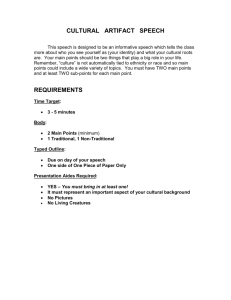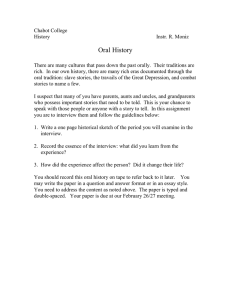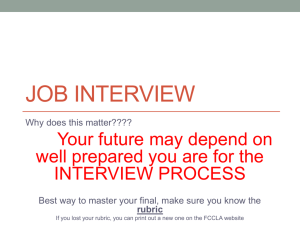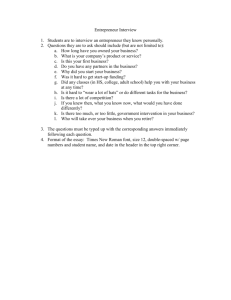SELECTING A RESEARCHED INFORMATIVE SPEECH TOPIC: PRE-WRITING PLANNING STAGE
advertisement
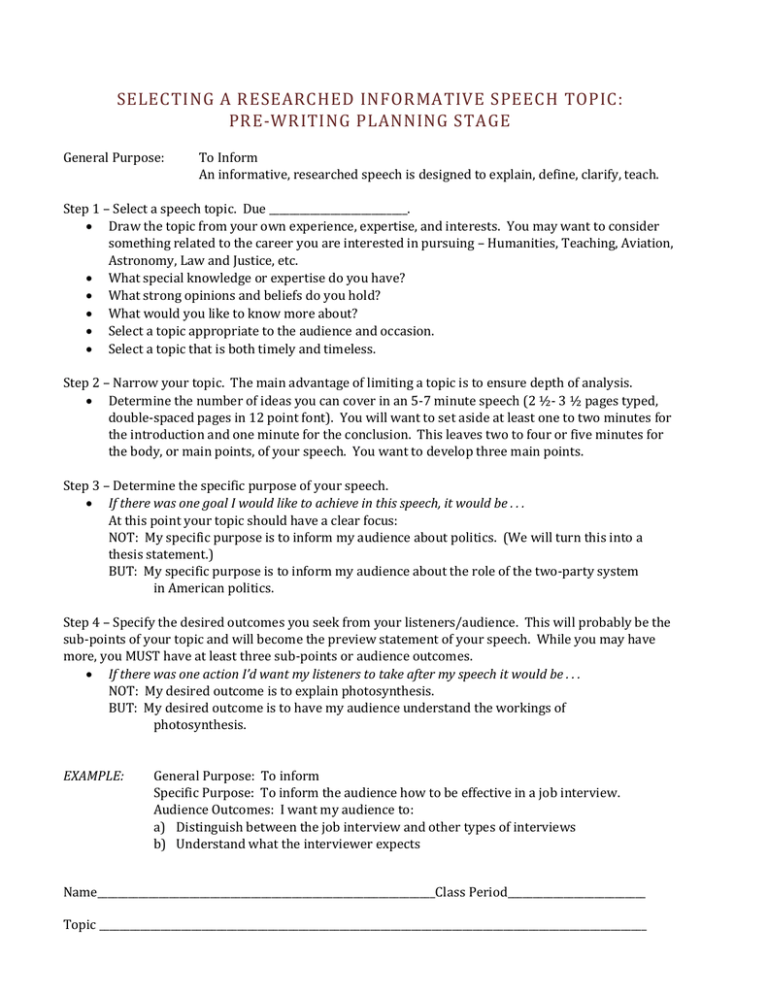
SELECTING A RESEARCHED INFORMATIVE SPEECH TOPIC: PRE-WRITING PLANNING STAGE General Purpose: To Inform An informative, researched speech is designed to explain, define, clarify, teach. Step 1 – Select a speech topic. Due ___________________________. Draw the topic from your own experience, expertise, and interests. You may want to consider something related to the career you are interested in pursuing – Humanities, Teaching, Aviation, Astronomy, Law and Justice, etc. What special knowledge or expertise do you have? What strong opinions and beliefs do you hold? What would you like to know more about? Select a topic appropriate to the audience and occasion. Select a topic that is both timely and timeless. Step 2 – Narrow your topic. The main advantage of limiting a topic is to ensure depth of analysis. Determine the number of ideas you can cover in an 5-7 minute speech (2 ½- 3 ½ pages typed, double-spaced pages in 12 point font). You will want to set aside at least one to two minutes for the introduction and one minute for the conclusion. This leaves two to four or five minutes for the body, or main points, of your speech. You want to develop three main points. Step 3 – Determine the specific purpose of your speech. If there was one goal I would like to achieve in this speech, it would be . . . At this point your topic should have a clear focus: NOT: My specific purpose is to inform my audience about politics. (We will turn this into a thesis statement.) BUT: My specific purpose is to inform my audience about the role of the two-party system in American politics. Step 4 – Specify the desired outcomes you seek from your listeners/audience. This will probably be the sub-points of your topic and will become the preview statement of your speech. While you may have more, you MUST have at least three sub-points or audience outcomes. If there was one action I’d want my listeners to take after my speech it would be . . . NOT: My desired outcome is to explain photosynthesis. BUT: My desired outcome is to have my audience understand the workings of photosynthesis. EXAMPLE: General Purpose: To inform Specific Purpose: To inform the audience how to be effective in a job interview. Audience Outcomes: I want my audience to: a) Distinguish between the job interview and other types of interviews b) Understand what the interviewer expects Name__________________________________________________________________Class Period___________________________ Topic ___________________________________________________________________________________________________________ c) Be able to list the four phases of the typical employment interview. d) Recognize the importance of appearance and body language in an interview. NOTE: The best way to be successful is to make sure that your audience understands your purpose. You will turn your topic in to your teacher on a note card in the following format: Name Period General Purpose: Specific Purpose: Audience Outcomes: A) B) C) D) E) Name__________________________________________________________________Class Period___________________________ Topic ___________________________________________________________________________________________________________
